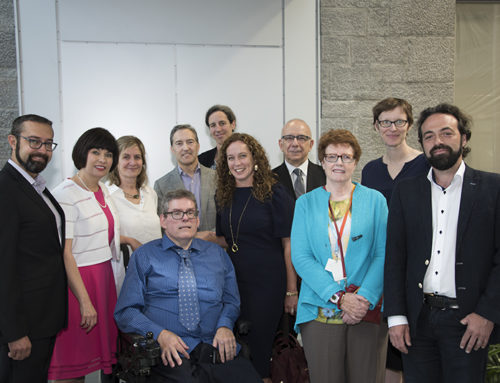As Canada enters its third month of disruption due to the COVID-19 pandemic, social problems such as loneliness and stigmatization become more apparent. A study published by Dr. Lesley Fellows at The Neuro, together with colleagues Dr. Marie-Josée Brouillette and Nancy Mayo at the Research Institute of the McGill University Health Centre and investigators at sites across the country, provides a portrait of loneliness linked to another devastating virus – the human immunodeficiency virus, or HIV.
As part of a larger study called the Positive Brain Health Now project, 834 men and women aged 35 and older who had an HIV diagnosis for at least a year were assessed using personal interviews, self-assessments, direct measurements and chart review. The majority of participants were men and the average age was 53 years old. Eighteen per cent of participants reported feeling lonely “quite often,” while an additional 46 per cent felt lonely sometimes. These rates are notably higher than in the general population: a recent report from the Canadian Longitudinal Study on Aging found that only 10.2 per cent of Canadians aged 45–85 years report persistent loneliness.
Wide-ranging consequences
Men and women did not differ in terms of loneliness. Surprisingly, younger people in the cohort reported more loneliness than older people, which goes against trends found in the general population. The authors could not show a cause for that but suggested it may be due to survivor bias – that those who lived with HIV before antiretroviral therapy survived by being part of tight social groups that exist to this day.
Using statistical models, the researchers found several factors that may contribute to loneliness among people with HIV, including stigma, living alone, physical symptoms that may “mark” them as infected, and financial hardship. Loneliness had wide-ranging consequences, with negative impacts on mood, motivation, cognition, stress levels, substance use, physical activity and overall quality of life.
This study shows loneliness is higher in the HIV community than the general population and is associated with negative health outcomes. Encouraging social integration may be a powerful way to reduce many of the long-term health problems that people with HIV face, despite effective antiviral treatments.
Similarities to COVID-19 social distancing
Of course, interventions like this will have to wait until social restrictions imposed due to COVID-19 are lifted. Dr. Fellows says the social exclusion people with COVID-19 face, if it persists, may have health implications long after the infection has resolved, similar to that of people with HIV. On the plus side, the pandemic may sensitize people to the experience of people with HIV and other infectious diseases, who often face stigma and social exclusion, and negative health outcomes as a result.
“People may be able to really understand that impact in a particularly vivid way these days,” she says. “Right now, we all are asked to think of each other as potentially infectious and steer clear, which does strange things to our sense of inter-connectedness. Our research suggests that living this experience over many years takes a definite toll. Society has a lot of power to influence the brain health of individuals, for better or for worse.”
This study was funded by the Canadian Institutes of Health Research.
Article originally published by the McGill Newsroom



